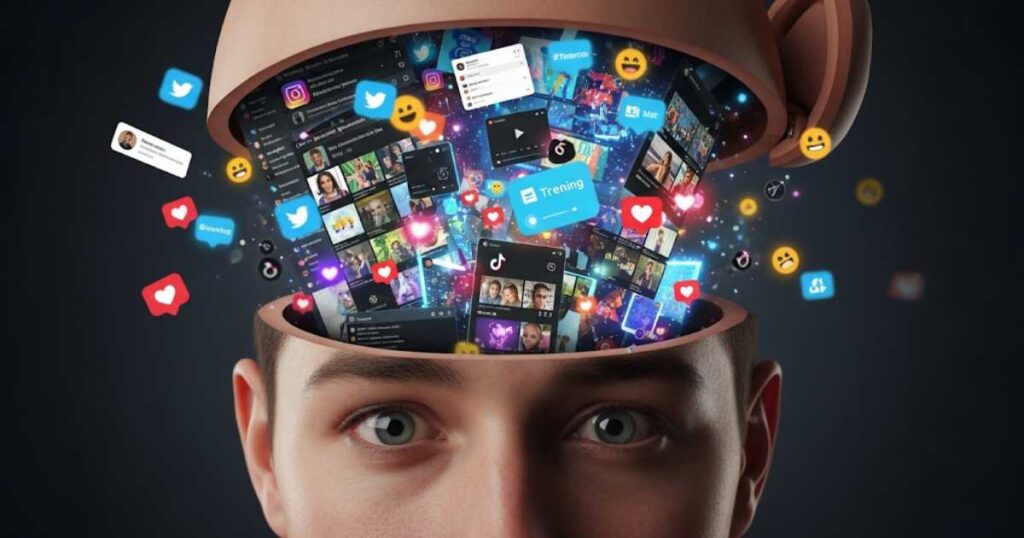It’s midnight. You should be sleeping, but instead, you’re scrolling through Instagram, watching a relationship guru tell you that if your partner isn’t texting you good morning paragraphs every day, they probably don’t love you. You pause, glance at your phone — no message. Panic sets in. Is your relationship doomed?
If that sounds ridiculous, congratulations, you still have common sense. But for millions of people, social media has become the go-to source for relationship advice, and honestly?
It’s making everything worse. Relationships, which are already complicated enough, are now being shaped by people who often have no real qualifications other than being popular online. And yet, their words hold an incredible amount of power.
A single 30-second reel can make someone question their entire relationship. A tweet with just the right mix of sass and confidence can convince someone to walk away from a partner who genuinely loves them. A well-edited TikTok can create an entirely new dating rule that people suddenly start believing as if it’s been a universal truth all along.
Once upon a time, relationship advice came from therapists, books, or at the very least, your grandmother, who had seen enough marriages fall apart to know what not to do.
But today, all it takes is a ring light, a confident tone, and phrases like “Know your worth, queen” or “If he wanted to, he would,” and boom — you’re an Instagram expert. The problem? Most of these influencers aren’t psychologists.
They’re just people who have figured out that saying dramatic things gets views. And because social media thrives on extremes, the advice that gains the most traction is often the most unrealistic.
No one goes viral for saying, “Relationships require patience and communication.” But tell people that their partner should be obsessed with them 24/7 or that anything less than constant admiration is a red flag? Instant engagement.
Instagram has created an illusion of “perfect” relationships, where every couple is in love all the time, never argues, and always prioritizes their partner over everything else. In reality, love is messy. It’s about tolerating your partner’s weird habits, like how they leave wet towels on the bed or chew too loudly when they eat chips.
It’s about arguing over what to watch on Netflix, tolerating mistakes, and accepting that sometimes your partner will annoy you just by breathing too loudly. But thanks to influencers, people now believe that if their relationship isn’t an uninterrupted romance movie, something must be wrong.
And then there’s the rise of viral but completely terrible relationship advice. Take the classic line, “If they loved you, they would never hurt you.” It sounds poetic, but let’s be honest — every relationship has moments of miscommunication, stress, or frustration.
Sometimes, people say things they don’t mean. Sometimes, they make mistakes. Expecting a partner to never mess up is like expecting a toddler to never spill juice — unrealistic and exhausting. Healthy relationships aren’t about never getting hurt; they’re about how you both handle things when you do.
Another favorite is “Never settle for less than a fairytale romance.” Cute idea, except real relationships aren’t fairytales. Cinderella didn’t have to deal with Prince Charming leaving socks on the floor, and Belle never argued with the Beast about whose turn it was to take out the trash.
Love isn’t about magical perfection; it’s about choosing someone even when things aren’t perfect. It’s about sticking together when life is stressful, when you’re both exhausted, when you disagree but still respect each other. If your idea of love is shaped by social media, you’ll end up chasing an illusion and missing out on the real thing.
And then there’s the classic, “Block them and move on — no explanation needed.” Now, in some situations, sure, cutting off toxic people is necessary. But let’s be real — blocking someone over minor disagreements isn’t healing, it’s just avoiding communication.
Not every conflict means a person is bad for you. Sometimes, people just need to talk things out. If ghosting was a healthy solution, therapists would recommend it. Spoiler: they don’t.
Perhaps the worst are the generic statements like “A real man will always…” or “A real woman would never…” These kinds of statements create a one-size-fits-all expectation for relationships, as if every person is supposed to act the same way.
In reality, relationships are deeply personal. What works for one couple might not work for another. Some people show love through words, some through actions.
Some are naturally affectionate, some take time to open up. There is no universal rule for how a “real” partner should behave because every individual is different. The moment you start comparing your relationship to a set of unrealistic standards, you stop appreciating it for what it actually is.
But why do we keep falling for this advice? There’s actually a psychological explanation. It’s called the halo effect — a cognitive bias that makes us assume people who are attractive, well-spoken, or popular must also be knowledgeable. Just because someone has a million followers doesn’t mean they understand relationships.
And yet, we take their words as gospel. It’s easy to believe someone who speaks with confidence, who presents their opinions as undeniable truths, who makes us feel like they’ve unlocked a secret that we’ve been missing. And because bad advice often sounds empowering in the moment, people cling to it without thinking about the long-term consequences.
Studies have shown that excessive social media use is linked to lower relationship satisfaction. One survey found that 60% of couples reported feeling insecure after comparing their relationships to unrealistic portrayals online.
Another study found that people who rely on social media for relationship advice are more likely to experience dissatisfaction and unrealistic expectations in their own love lives. It makes sense — how can real love compete with perfectly curated content?
So what should you actually do if you want a healthy relationship? First, communicate — your partner isn’t a mind reader. No matter how much they love you, they can’t automatically know what you need if you don’t tell them.
Accept that relationships aren’t about perfection, but about working through imperfections. Compromise, because love isn’t about “winning” arguments; it’s about finding solutions together. And most importantly, if you need advice, seek it from people who know what they’re talking about — like therapists, not strangers with a ring light.
Instagram influencers aren’t ruining relationships — our blind trust in them is. Love isn’t built on viral quotes; it’s built on patience, effort, and actual human connection. So next time an influencer tells you to dump your partner because they didn’t respond to a text fast enough, maybe… don’t.
Think critically. Look beyond the clickbait. Relationships aren’t about proving anything to the internet — they’re about building something real with another human being.
If love was as simple as a 30-second reel, Shakespeare wasted a lot of time.
Now go fix your relationship — without Instagram’s help.



